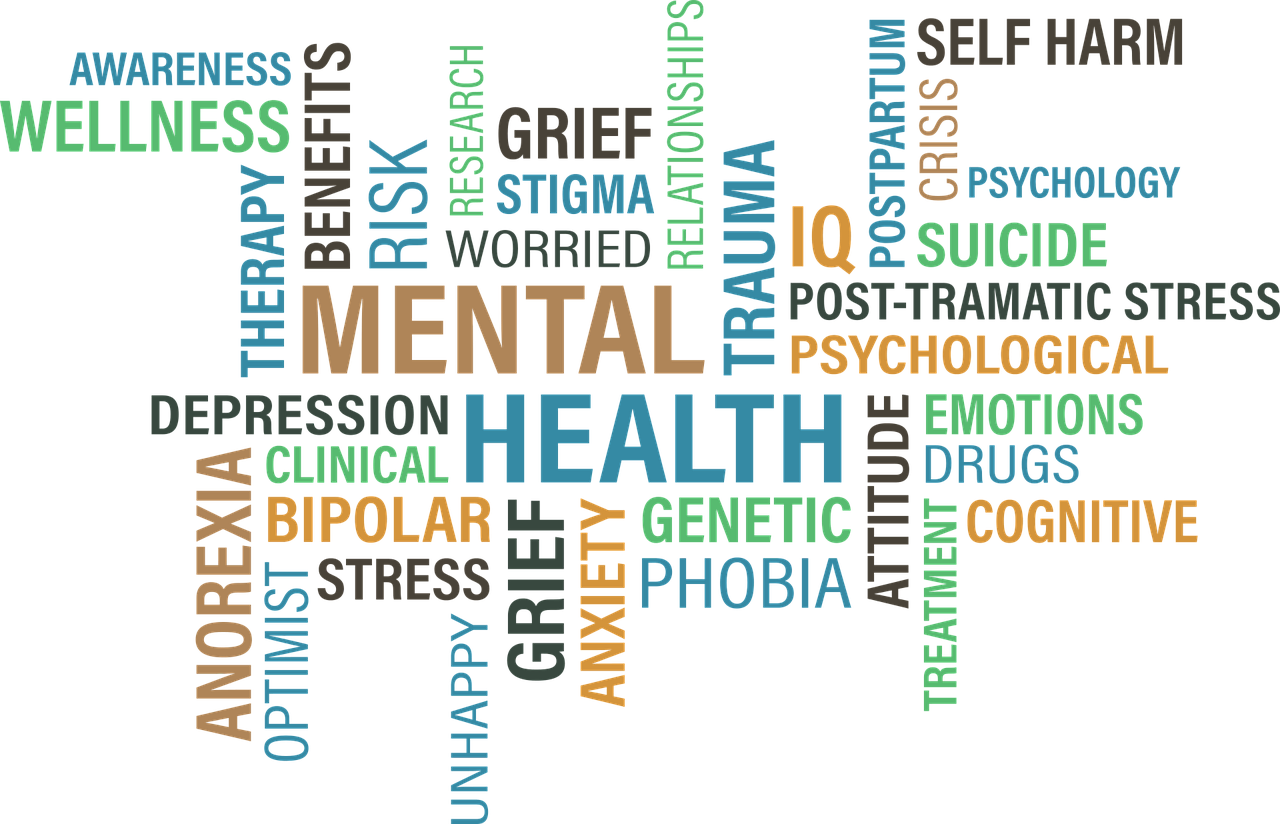A Christian Approach to Mental Health and Therapy
“I have the right to do anything”, you say-but not everything is beneficial. “I have the right to do anything” – but I will not be mastered by anything.” ~ 1 Corinthians 6:12 (NIV)
Therapy was something that was foreign to me. It was foreign, not because of my faith, but because of my race. I heard time and time again, “Black people don’t go to Therapy.” That was enough to stop me from even exploring it. I was black. Therefore I could not seek therapy. Like many things that have been passed down throughout our community, it didn’t make sense, but I didn’t question it. I navigated life for forty-years through all of the ups and downs, through loss and disappointments. I took my lickings and kept on ticking. I would get knocked down, and just like the plastic punching bag that I had as a kid, I would spring right back up. I was resilient, and I took pride in my resilience. Then one day, I noticed that my bounce back was a little delayed. It was taking me a little longer to get back up and get back in the game. I was taking the lickings, but my ticking was off. The very thought of dusting myself off and starting again was exhausting. The first time I ever heard therapy mentioned from a church leader, it was presented as a favorable resource. The Pastor talked about her therapist and the frequency in which she met with her. I remember thinking, “how brave of her.” Not because she was a Pastor talking about therapy but because she was a black woman talking publicly about therapy. She was brave and unapologetic about her choice to seek counseling.
Like many women of color, I was consumed with ambition. I was pursuing education, I was climbing the corporate ladder, and I was building business and ministry. While simultaneously, managing marriage and raising my children. I wanted to do it all, I wanted to do it all well, and I wanted to do it all now. I was in leadership at work, I was in leadership at church, and I was leading my own ministry, Girlfriend Therapy. My mandate in ministry carried with it an element of therapy, so I understood the importance of it. Ministry allowed me to look at therapy as a tool – a resource that was necessary in order to maintain good mental health; a tool similar to prayer, meditation, and mindfulness. I had begun seeing a therapist in 2012 after my last child went off to college, making my husband and me empty nesters. We were excited about the new found freedom that comes with dropping your last child off to college. I had grand ideas of what this season meant for me, and my husband had grand ideas of what it meant for him, but unfortunately our ideas didn’t align. I’ll never forget; we were on vacation with friends in Branson, Missouri, and after announcing our plans and seeing how misaligned they were, I suggested that we go to couples therapy. My husband didn’t protest, and for the first time in our black lives, we found ourselves sitting on the couch talking to a professional about trying to find a fair balance in our marriage. It was the best decision that we could have ever made, and I boasted the fact that it was helpful to anyone who would listen. “Couples therapy was great!” I would announce, “You guys have to try it.” I remember the looks on the faces of my black friends who, I’m sure, was raised with the same warnings about therapy- black people don’t go to therapy!
My husband and I went to therapy for a couple of years. We went both as a couple and as individuals. All was well. Fast forward to 2018; life had taken a devastating turn; I had suffered from one disappointment after another. There were the death and loss of loved ones. My life was completely off balance, and no matter how hard I tried, I could not seem to get my bearing. I reached back out to my therapist, and we immediately began to have weekly sessions. I shared with her all of my fears and my concerns. Things that I would never feel comfortable saying as a leader in business or in ministry. Stress had become difficult to manage, and I found myself having anxiety and panic attacks. This was something that I had never experienced before, and quite frankly, I thought I was losing my mind. I was sharing my feelings with my husband, my family, my best friend, and my spiritual mentor. They were all very supportive and very encouraging. They would pray for me and share scriptures and inspirational quotes with me daily- trying to keep me encouraged. One day after months of therapy, my therapist mentioned the one word that would get the Saints unnerved, “medication.” My therapist suggested that I take medication to help with stress and anxiety. Honestly, I was feeling so unlike myself that I was open to the idea. In my normal life, I don’t even take medicine for allergies or headaches, so the idea of taking medication for mental stress put everyone on alert. I shared the suggestion with my husband first, and I noticed that he got a little quiet. Then I shared it with my best girlfriend, and she got a little quiet. My husband, when he found the words, simply reminded me that, “I have the mind of Christ” (1 Corinthians 2:16, NIV). My best friend reminded me of the scripture found in 2 Corinthians 10: 5 (NIV), “…demolish arguments and every pretension that sets itself up against the knowledge of God, and we take captive every thought to make it obedient to Christ.”
I did not find a conflict with my faith in me going to therapy and finding a safe place to share my feelings and process. But I did find a conflict in me taking medication to distort my reality and to control my feelings and emotions. I understand that there is such a thing as a hormonal imbalance that can cause mental instability, most women deal with it every month in the form of Pre-menstrual syndrome (PMS), but what I was experiencing was not a hormone imbalance. What I was dealing with was a series of disappointments, sadness, grief, and mourning. All of which are normal feelings and emotions. All of which, God has graced us for John 16:33 (NIV), “In this world, you will have trouble. But take heart! I have overcome the world.” Matthew 11:28 (NIV), “Come unto me all who labor and are heavy burdened, and I will give you rest.” 2 Corinthians 12:9 (NKJV), “My grace is sufficient for you, for My strength is made perfect in weakness.” Therapy, like most things, is not innately bad. But like most things, we as Christians must always measure it against the truth of God’s Word. Freedom is the ultimate goal, not entanglement. Of course, I encourage everyone to consult their Doctor when making decisions about medication, but for Christians, a consultation with God should also be a part of your decision-making process.
Kwanza is a Christian Publisher, Author, Conference Host, Speaker, Radio Host and Ministry Consultant. She is the Founder and Director of Girlfriend Therapy®, Inc. a ministry designed to educate, encourage, and empower women through the truth of God’s word. Learn more about Girlfriend Therapy Ministry by visiting our website at www.girlfriendtherapy.org. Kwanza is the Author of No Greater Love (fiction, 2009), According to Your Faith Be It Unto You (non-fiction, 2012), and her recently released, Reflections of a Life Well Lived (memoir, 2020). You can purchase her titles from her online bookstore at http://kwanzasbooks.storenvy.com/




